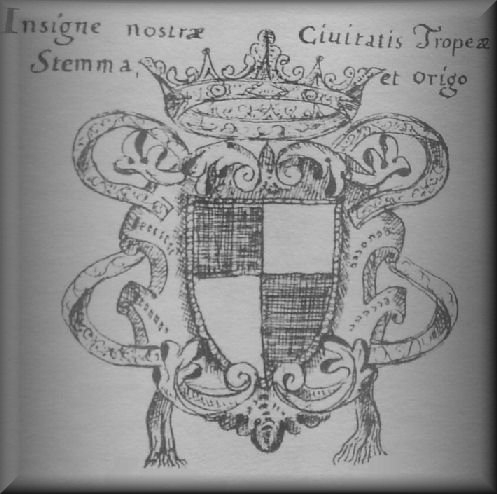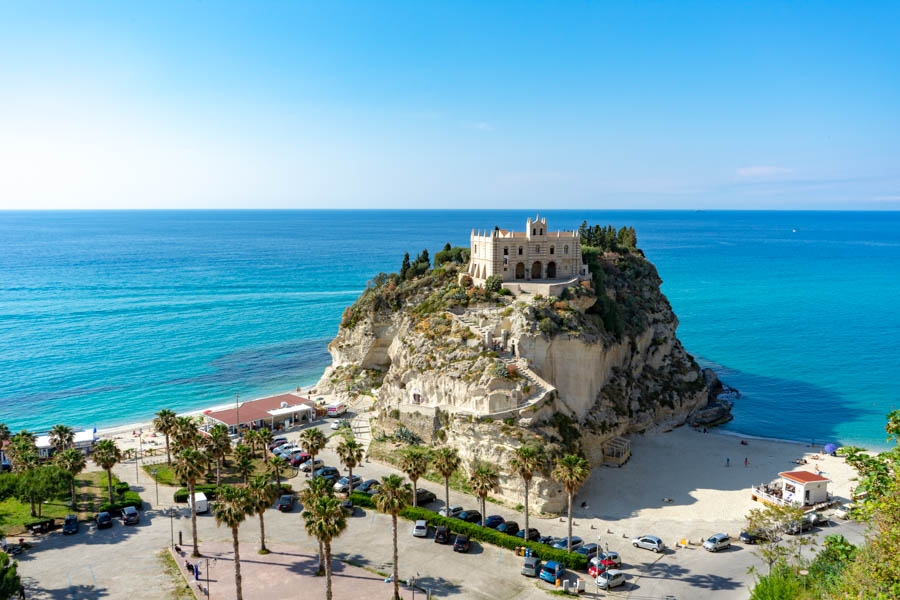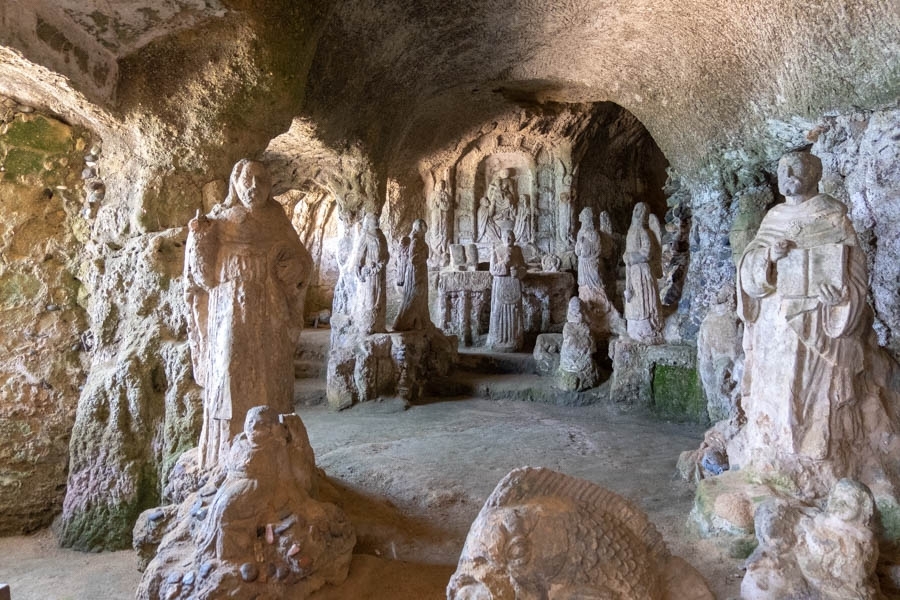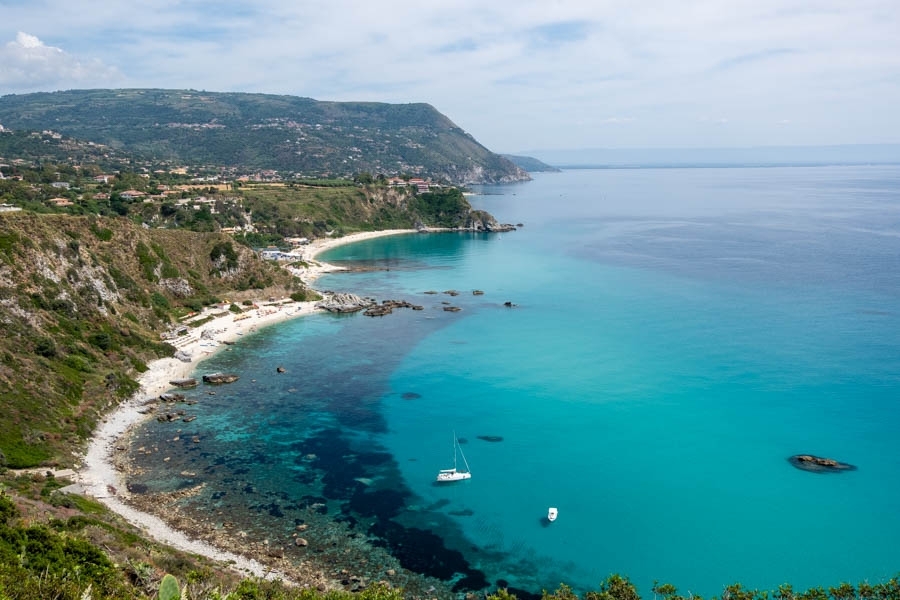i nobili di tropea
un tuffo nella storia tropeanoI Nobili a Tropea
Tropea ha una sua storia importante sia per la posizione geografica, e sia per la realtà sociopolitica che affonda le radici in secoli molto lontani da noi.
È posta sopra uno scoglio di forma tondeggiante, su un giro roccioso, che è a picco sul mare.
Altre cittadine della regione si ritiravano sui monti per sfuggire alla malaria e alle incursioni arabe e turche.
Tropea rimase sul mare, che le apriva le vie delle comunicazioni con il suo porto.
Fu città demaniale, città regia, non soggetta a regime feudale, con governo amministrativo nobiliare, con una vita culturale aperta e viva, per quei tempi, in campo letterario, musicale, poetico filosofico e teologico.
In campo filosofico emerge il filosofo tropeano Pasquale Galluppi nato nel 1770 e morto a Napoli nel 1846.
Nel suo palazzo, accanto alla chiesa del Gesù, vi è una targa che lo ricorda e proprio vicino vi è la chiesa dei Nobili che lui frequentava.
Dedicò tutta la sua vita agli studi filosofici. È fu padre di ben 14 figli. Riusciva a concentrarsi nello studio tra gli schiamazzi dei piccoli che erano intorno a lui.
Infatti, fu marito e padre amorevole ed innamorato del suo paese, tanto da ripetere, più volte, nei suoi scritti: “Io barone di Tropea”.
Fu liberale, scrittore di molti libri, tra cui la filosofia della matematica, accademico di Francia e professore di filosofia della celebre università Federico II di Napoli. Morto a Napoli, le sue spoglie ora riposano nella cattedrale normanna di Tropea.
Oltre che filosofo, fu anche poeta e face parte dell’Accademia degli Affaticati - i cui membri si riunivano nelle chiese o nelle case private, in occasioni di feste o ricorrenze da celebrare.
I nobili tropeani già dal 1400, avevano fatto costruire, nel centro storico, difeso da una parte dal mare e dalle porte, splendide dimore molto luminose con mobili e quadri di pregio.
Non lavoravano e vivevano delle rendite delle loro proprietà intorno a Tropea, concentrate in 24 casali su cui essi avevano massimo potere, sfruttando i contadini e affamandoli, impedendo ai figli di studiare perché legati alle loro terre.
Ogni mattina si aprivano le tre porte, di cui Tropea era dotata; Porta Vaticana, Porta di Mare e Porta Nuova (dopo il terremoto del 1783) ed entravano i contadini che portavano le primizie ai loro signori ed erano tanto caricati nelle braccia che dovevano bussare con i piedi. Venivano spesso accolti con il frustino certo non da tutti i nobili, ma per la maggiore parte.
I nobili erano sprezzanti, mai contenti, si sposavano tra di loro altrimenti prendevano la strada del clero o delle armi. Anche se le cose oggi, sono cambiate la mentalità rimane quella di una volta. I pochi nobili rimasti cercano di restare uniti nella loro cerchia, evitando il resto della popolazione che ha ormai nelle mani il potere dei soldi e, non avendo cultura, la disprezza, così come disprezza la bellezza ed esalta il profitto.
Al tempo dei nobili vi erano rigide regole sociali, solo loro, vivevano senza lavorare, tutti gli altri si spaccavano la schiena e soffrivano vivendo nei bassi malattie come tubercolosi e la malaria, fame e sporcizia insieme ai numerosi figli.
I nobili si spostavano nelle vie strette sulle carrozze ed il loro corso era via Roma dalla Porte di mare verso Porte Vaticana.
La loro vita si svolgeva di notte, nelle loro case illuminati del fuoco dei camini e dei candelabri giocando ballando e divertendosi. Spesso duellavano e nel buio delle strade qualcuno tendeva agguati anche per scherzo, come avvenne al giovane figlio del filosofo Pasquale Galluppi che fu infilzato per gioco nei pressi del suo palazzo: il giovane Teofilo.
Essendo Tropea città demaniale che dipendeva direttamente dal re, (vi è uno splendido stemma con la scritta “Sola Tropea Sub Fidelitate Remansit” Solo Tropea rimane fedele al Re nei secoli) I nobili non pagavano le tasse, sono visibili oggi, i fori delle impalcature nei palazzi che essi lasciavano per mostrare le non avevano finito il lavoro di ristrutturazione. Quindi è chiaro che la società era divisa in tre classi sociali: i nobili che amministravano e comandavano; i piccoli borghesi che copiavano il loro mondo di vivere; la mossa stracciata del popolo ed i contadini e gli artigiani.
La sede dell’amministrazione nobiliare era l’Antica Sedile che si trova in piazza Ercole.
Oggi il municipio si trova nei locali dell’antico convento dei padri Gesuiti, via largo di netta. I padri Gesuiti che erano i precettori dei figli dei nobili.
Accanto vi è la cappella dei bianchi di San Nicola, meglio conosciuta come Cappella dei Nobili.
Qui si svolgevano le loro cerimonie religiose e in caso di morte, i nobili avevano una loro cappella al cimitero, collegata con la chiesa dove tumulavano i loro congiunti.
Ancora oggi vi è la cappella al cimitero, dove riposano i membri dell’associazione dei Bianchi di San Nicola.
Uno dei pochi nobili che, divenuto sacerdote, si prodigò per tutta la vita ai poveri e agli abbandonati fu Don Francesco Mottola, nato nel 1901 a Tropea e morto nel 1969.
È vissuto nel periodo più tragico delle guerre, della fame e delle malattie. Insieme alla signorina contessa Irma Scrugli fondò l’istituto delle Oblate e degli Oblati del Sacro Cuore che dovevano essere certosini della strada, pregare e nello stesso tempo alleviare le sofferenze altrui.
Don Mottola è ora Beato e ci traviano proprio nell’anno della celebrazione della sua beatitudine.





